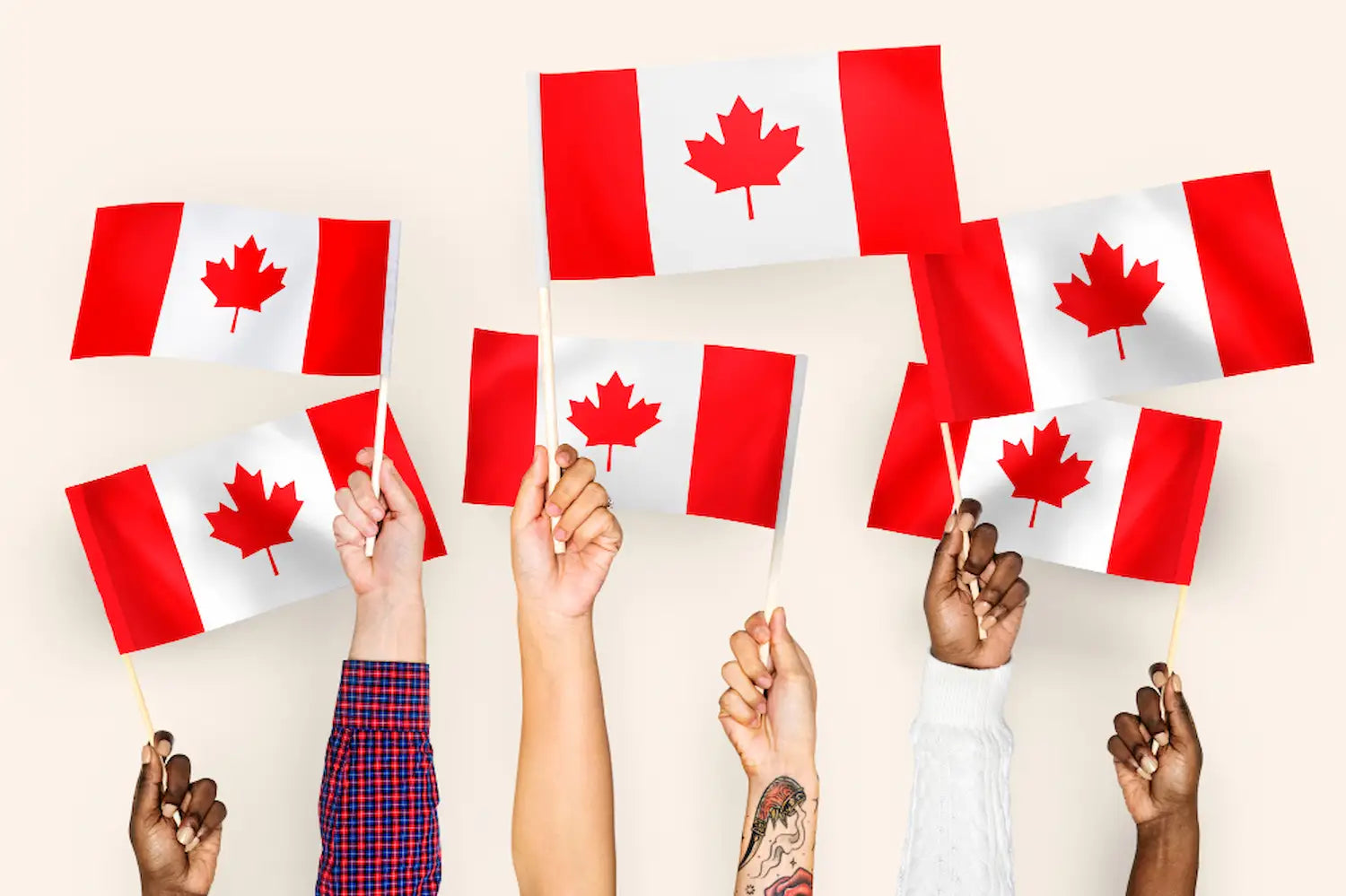Canada is home to over 3.2 lakh international students, 34 globally ranked universities, and more than 8,000 undergraduate programs. Studying for a bachelor's degree in Canada means you get a top-quality education along with opportunities for internships, scholarships, and work permits. For Indian students, it’s not just about earning a degree; it’s an investment in a globally respected qualification and a brighter future.
Why Choose Canada for Your Bachelor’s Degree

Canada is one of the most popular countries for higher education, attracting thousands of students every year, especially from India. Bachelors degree Canada is not just about getting a certificate, but about building a strong career, enjoying a good lifestyle, and gaining an education that’s respected all over the world. Here’s why Canada is a great choice:
1. World-Famous Universities
Canada has top universities like the University of Toronto, McGill University, and the University of British Columbia, all ranked among the best in the world. A degree from these universities is valued globally and can open doors to career opportunities both in Canada and abroad.
2. Career-Ready Education
Most bachelor courses in Canada offer co-op internships or practical training. This means you can work while studying, gain real experience, meet industry professionals, and boost your job chances even before graduating.
3. Work Opportunities After Graduation
After finishing your degree, you can apply for a Post-Graduation Work Permit (PGWP) and work in Canada for up to three years. This experience can also help you apply for permanent residency through pathways like the Canadian Experience Class (CEC).
4. Affordable Compared to Other Countries
While studying abroad is never cheap, study bachelors in Canada is generally more affordable than in the US, UK, or Australia. On top of that, many scholarships are available for international students, which can help lower your expenses.
5. Welcoming and Diverse Culture
Canada is known for its friendly and inclusive environment. Cities like Toronto, Vancouver, and Montreal have strong Indian communities, so you’ll never feel far from home.
6. Excellent Quality of Life
Canada offers safe cities, modern infrastructure, good healthcare, and reliable public transport. It’s one of the best countries in the world for both living and studying.
Types of Bachelor’s Programs in Canada
Canadian universities and colleges offer many kinds of undergraduate programs to match different career goals, learning styles, and strengths. Whether you want a research-focused degree, hands-on training, or a faster route to starting your job, Canada has an option for you.
1. Standard bachelor’s Degrees
- Duration: Around 4 years full-time
- Focus: Academic learning in a specific subject like engineering, business, computer science, health sciences, or arts
- Outcome: A globally recognised degree that can help you start your career or continue to higher studies, like a master’s
2. Bachelor’s Degrees with Co-op Programs
- What it is: Combines classroom learning with paid, full-time work placements
- Duration: Usually adds 1 extra year to your degree, giving you up to 2 years of work experience while studying
- Benefit: You graduate with real work experience, industry contacts, and a stronger resume
3. Associate degrees
- Duration: 2 years
- Offered by: Mostly colleges and some universities
- Pathway: You can transfer your credits to a bachelor degree in Canada for international students and finish your degree faster and at a lower cost
4. Diploma and Advanced Diploma Programs
- Duration: 2-3 years
- Focus: Practical, job-ready skills
- Ideal for: Students who want to start working quickly or later upgrade to a bachelor’s degree
5. Honours Bachelor’s Degrees
- Duration: 4 years, with higher academic standards
- Special Feature: Includes a research project or thesis in the final year
- Advantage: Great for students planning to do a master’s or PhD later
Duration & Structure
A Canada bachelor's degree is designed to give you both strong academic knowledge and practical skills so you’re ready for a global career or further studies. While the overall framework is similar, the exact Canada bachelor degree duration can vary depending on your program and university.
1. Duration of Study
- Standard bachelor’s Degrees: Usually 4 years of full-time study
- Co-op Programs: Can take 4.5-5 years because they include paid work placements
- Associate degrees: 2 years, with an option to transfer credits to complete a full bachelor’s degree.
- Diplomas/Advanced Diplomas: 2-3 years, often with the option to transfer credits to a degree program
2. Academic Structure
- Semester System: Most universities have Fall (Sept-Dec) and Winter (Jan-Apr) semesters, with some also offering Spring/Summer (May-Aug) for faster or optional courses
- Credit-Based Learning: You’ll need to earn about 120-144 credits through core subjects, electives, and specialisations
- Course Load: Full-time students usually take 4-6 courses each semester
- Capstone/Thesis Projects: Some programs, especially Honours degrees, require a final-year research project or thesis
3. Flexibility in Learning
- Part-Time Study: Available in some programs. Great if you’re working while studying
- Online & Hybrid Options: Some courses can be taken fully online or in a mix of online and in-person classes
- Specialisations & Minors: You can personalise your degree by adding a minor, double major, or specific concentration
Top Universities for Bachelor’s in Canada (with Fees)

Canada has some of the world’s best universities, offering a wide range of undergraduate programs in fields like engineering, business, computer science, arts, and healthcare. For Indian students, knowing the fees in advance makes it easier to plan their budget.
Here’s a quick look at the top universities, their global rankings (QS 2025), popular programs, and approximate annual tuition fees for international students:
|
University |
QS World Rank 2025 |
Popular Bachelor’s Programs |
Approx. Annual Tuition Fees (CAD) |
|
University of Toronto |
#21 |
Computer Science, Engineering, Business, Life Sciences |
58,160 |
|
McGill University |
#30 |
Medicine, Law, Arts, Science |
45,656 |
|
University of British Columbia (UBC) |
#34 |
Forestry, Engineering, Economics, Biology |
40,766 |
|
University of Alberta |
#111 |
Petroleum Engineering, Pharmacy, Agriculture |
29,500 |
|
McMaster University |
#144 |
Health Sciences, Engineering, Humanities |
39,196 |
|
University of Waterloo |
#189 |
Computer Science, Math, Co-op Programs |
42,700 |
|
University of Ottawa |
#203 |
Social Sciences, Law, Engineering |
36,161 |
|
Queen’s University |
#209 |
Business, Arts, Engineering |
48,600 |
|
Dalhousie University |
#298 |
Ocean Sciences, Law, Medicine |
36,704 |
|
University of Victoria |
#359 |
Earth Sciences, Business, Computer Science |
25,860 |
Tips for Choosing the Right University
- Check the ranking for your specific program, not just the overall university rank
- Consider the city. Bigger cities like Toronto and Vancouver have higher living costs than smaller towns
- Look for universities that offer good co-op or internship programs in your field
- Explore scholarships and financial aid directly from the university
Eligibility Requirements for Indian Students
If you’re an Indian student planning to do bachelors degree in Canada, you’ll need to meet certain academic and English language requirements. While these can vary depending on the university and course, here’s a simple overview.
1. Bachelor's in Canada requirements
You must have completed Class 12 from CBSE, CISCE, or a recognised state board.
Minimum Marks: Usually between 75-85% overall (depends on how competitive the program is)
Subjects Needed:
- Engineering/Science: Maths, Physics, Chemistry
- Business/Economics: Maths (sometimes Economics or Accounting too)
- Arts/Humanities: English and other related subjects
2. English Language Proficiency
You’ll need to show proof of English skills through one of these tests:
|
Test |
Typical Minimum Score |
|
IELTS Academic |
Overall 6.5 (no band less than 6.0) |
|
TOEFL iBT |
90-100 overall |
|
PTE Academic |
60+ |
|
Duolingo English Test |
110-120 |
(Some universities accept slightly lower scores for conditional admission or offer English pathway programs.)
3. Additional Admission Requirements
- Statement of Purpose (SOP): Explains your study goals and why you chose Canada
- Letters of Recommendation (LORs): From teachers or mentors who know your work well
- Portfolio: Needed for courses like design, architecture, fine arts, or media
- Entrance Exams: Some programs (like music or performing arts) may require auditions or subject tests
4. Age Requirement
You should be at least 17 years old when your program begins.
Cost of Studying a Bachelor’s in Canada
Bachelor degree in Canada for Indian students is a big step and also a big investment. Knowing the costs in advance will help you plan your budget better. Your total expenses will include tuition fees, living costs, and other charges like health insurance and application fees.
1. Tuition Fees
- Average Range: CAD 25,000-60,000 per year (₹15-36 lakh)
- Fees change based on the university, course, and city
- Programs like medicine, engineering, and business usually cost more than arts or humanities
|
Program Type |
Average Annual Tuition (CAD) |
Approx. in INR |
|
Arts/Humanities |
20,000-30,000 |
₹12-18 lakh |
|
Engineering |
30,000-50,000 |
₹18-30 lakh |
|
Business/Management |
28,000-45,000 |
₹1-27 lakh |
|
Health Sciences |
35,000-60,000 |
₹21-36 lakh |
2. Living Expenses
Living costs vary by city. Big cities like Toronto and Vancouver are more expensive than smaller towns.
|
Expense |
Monthly Cost (CAD) |
Approx. in INR |
|
Accommodation |
600-1,200 |
₹36,000-72,000 |
|
Food & Groceries |
200-400 |
₹12,000-24,000 |
|
Transport |
80-150 |
₹4,800-9,000 |
|
Utilities & Internet |
150-250 |
₹9,000-15,000 |
|
Miscellaneous |
100-200 |
₹6,000-12,000 |
Estimated Annual Living Cost: CAD 10,000-15,000 (₹6-9 lakh)
3. Additional Costs
- Application Fees: CAD 50-200 per university (₹3,000-12,000)
- Health Insurance: CAD 600-900/year (₹36,000-54,000)
- Books & Supplies: CAD 500-1,000/year (₹30,000-60,000)
- Student Visa (Study Permit): CAD 150 (~₹9,000)
4. Money-Saving Tips for Indian Students
- Apply for scholarships and bursaries from universities
- Choose co-op programs so you can earn while you study
- Share accommodation to save on rent
- Use student discounts for transport, food, and entertainment
Scholarships for Bachelor’s Students in Canada
Many Canadian universities and government bodies offer scholarships to help international students, including those from India, make studying in Canada more affordable. Scholarships can be based on merit (good grades), financial need, or even specific programs. Some cover part of your tuition, while others may cover the full cost plus living expenses.
1. University-Specific Scholarships
|
Scholarship Name |
Provider/University |
Value (Approx.) |
Eligibility Highlights |
|
University of Alberta International Scholarships |
University of Alberta |
Up to CAD 29,000 |
Merit-based, strong academics |
|
International Student Entrance Scholarship |
University of Waterloo |
CAD 10,000 |
Academic excellence, leadership skills |
|
International Student Merit Scholarship |
Ryerson University |
CAD 5,000 |
High grades, extracurricular activities |
|
University of Windsor International Scholarships |
University of Windsor |
CAD 1,000-16,000 |
Merit-based, open to all programs |
|
Lakehead University Entrance Scholarships |
Lakehead University |
CAD 4,000-30,000 |
High school performance (80%+) |
2. Government and External Scholarships
|
Scholarship Name |
Provider |
Value (Approx.) |
Eligibility Highlights |
|
Canadian Commonwealth Scholarship Program |
Government of Canada |
Varies |
Academic excellence, open to students from Commonwealth countries |
|
Lester B. Pearson International Scholarship |
University of Toronto |
Full tuition + living expenses |
Exceptional academics & leadership skills |
|
Vanier Canada Graduate Scholarships* |
Government of Canada |
CAD 50,000/year |
For postgraduate study (good to know for future plans) |
|
Canada-India Research Centre Scholarships |
Various institutions |
Varies |
India-specific, research-focused |
3. Tips for Getting a Scholarship
- Apply early. Deadlines are often 6-12 months before your course starts
- Keep your Class 12 grades high
- Show leadership skills and participate in extracurricular activities
- Write a strong Statement of Purpose (SOP) that matches the scholarship’s values
Career Prospects After Graduation

Getting a Bachelor’s degree in Canada can open up amazing career opportunities both in Canada and around the world. Canadian education is practical, industry-focused, and designed to make students job-ready with the help of internships, co-op programs, and hands-on training.
1. Post-Graduation Work Permit (PGWP)
- After finishing your bachelor’s degree, you can apply for a Post-Graduation Work Permit, which lets you work in Canada for up to three years
- This Canadian work experience can also help you apply for permanent residency through the Canadian Experience Class (CEC) under Express Entry
2. Popular Job Sectors for Graduates
- Information Technology & Computer Science: Software Developer, Data Analyst, Cybersecurity Specialist
- Engineering: Civil Engineer, Mechanical Engineer, Environmental Engineer
- Business & Management: Financial Analyst, Marketing Specialist, Human Resources Coordinator
- Healthcare: Registered Nurse, Medical Lab Technologist, Public Health Officer
- Environmental & Natural Sciences: Biologist, Environmental Consultant, Geoscientist
3. Average Starting Salary for Fresh Graduates (varies by industry, role, and location)
|
Sector |
Average Salary (CAD/year) |
Approx. in INR/year |
|
Information Technology |
50,000-70,000 |
₹30-42 lakh |
|
Engineering |
55,000-75,000 |
₹33-45 lakh |
|
Business/Finance |
45,000-65,000 |
₹27-39 lakh |
|
Healthcare |
55,000-80,000 |
₹33-48 lakh |
|
Sciences |
42,000-60,000 |
₹25-36 lakh |
4. Advantages of Working in Canada After Graduation
- High employability thanks to programs connected with industry needs
- Strong job demand for skilled graduates in tech, healthcare, and engineering
- Clear pathways to permanent residency for those who want to settle
- Work in diverse, multicultural environments and gain global experience
Step-by-Step Application Process
Applying for a Bachelor’s degree in Canada involves a few clear steps, from picking the right program to getting your study permit. Here’s a simple guide for Indian students:
Step 1: Research and Shortlist Programs
- Look for undergraduate programs that match your academic background, career plans, and budget
- Check intake options. Fall (September), Winter (January), or Summer (May)
Step 2: Check Eligibility Requirements
- Make sure you meet the required subjects, marks, and academic qualifications
- Check English test requirements (IELTS, TOEFL, PTE, etc.)
Step 3: Prepare Your Documents
- Class 10 & 12 mark sheets and certificates
- English test scorecard
- Statement of Purpose (SOP) explaining your study goals
- Letters of Recommendation (LORs) from teachers or mentors
- Portfolio (if applying for design, architecture, or arts)
Step 4: Submit Applications
- Apply directly through the university website or provincial portals like OUAC (Ontario) or ApplyAlberta.
- Pay the application fee (CAD 50-200 per university)
Step 5: Wait for Offer of Admission
- If selected, you’ll get an Offer Letter or Letter of Acceptance (LOA)
- Some offers may be conditional (for example, waiting for final results)
Step 6: Apply for a Canada Study Permit
- Apply online through the IRCC website
- Submit LOA, proof of funds, passport, photos, and visa fee (CAD 150)
Step 7: Arrange Finances and Scholarships
- Show proof of funds (GIC + bank statements)
- Apply for scholarships or bursaries if you qualify
Step 8: Plan Accommodation and Travel
- Book on-campus or off-campus housing
- Book your travel and arrive in time for orientation and classes
Tips for Choosing the Right Bachelor’s Program
Picking the right Bachelor’s degree in Canada is a big decision that will shape your studies and career. With so many options available, here’s how to find the one that suits you best:
1. Match Your Career Goals
- Choose a course that fits your long-term career plans
- If you’re unsure, pick a field with wide job options, like business, computer science, or engineering
2. Check Program Content and Specialisations
- Go through the course structure, main subjects, and electives
- Look for specialisations or minors that can boost your skills. For example, adding Data Science to a Computer Science degree
3. Consider Co-op and Internship Options
- Co-op programs let you work in paid placements while studying
- This gives you real-world experience, industry contacts, and a stronger resume
4. Compare Tuition Fees and Living Costs
- Find a balance between program quality and affordability
- Remember, tuition and living expenses vary a lot by city and university
5. Research University Rankings in Your Field
- Don’t just check overall rankings, see how your chosen subject ranks
- A mid-ranked university could be one of the best for your course
6. Evaluate Location and Lifestyle
- Big cities offer more job options, but cost more to live in
- Smaller towns are cheaper but may have fewer part-time work opportunities
7. Look into Post-Graduation Pathways
- Make sure your program is eligible for a Post-Graduation Work Permit (PGWP)
- Check if your field is in high demand in Canada to increase your chances for permanent residency
Conclusion
If you want a degree that’s valued worldwide, the chance to gain real work experience, and a career in one of the friendliest countries, then studying for a Bachelor’s in Canada is a great choice. For Indian students, it’s a smart investment in your education, career, and future. The sooner you start planning, the sooner you can turn your dream of studying in Canada into reality.







